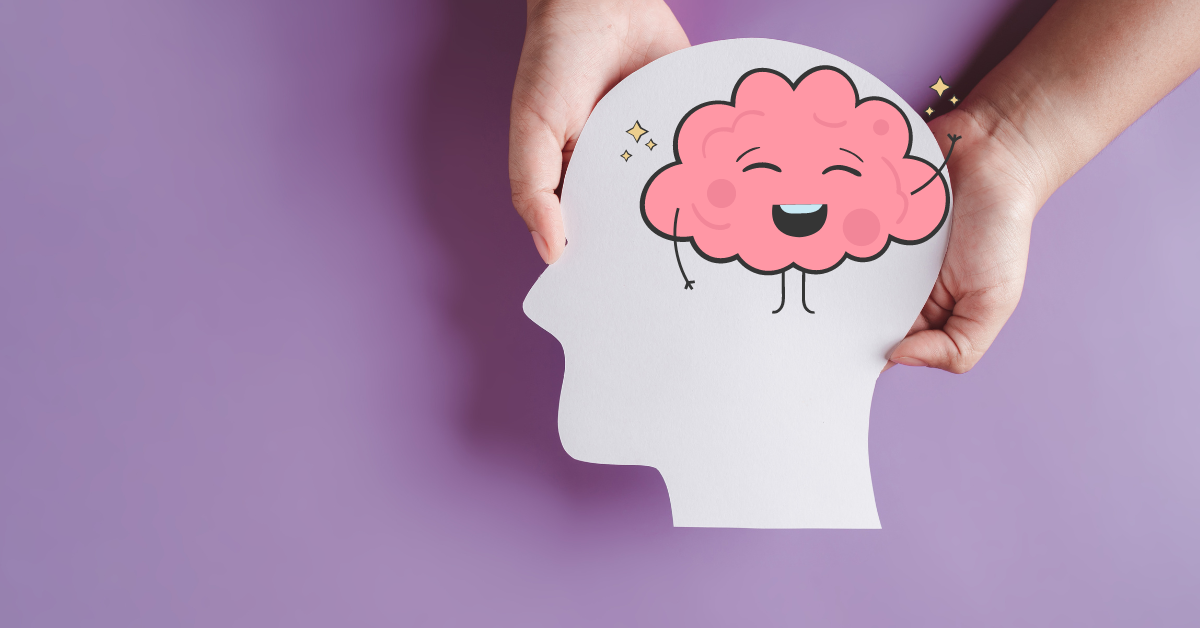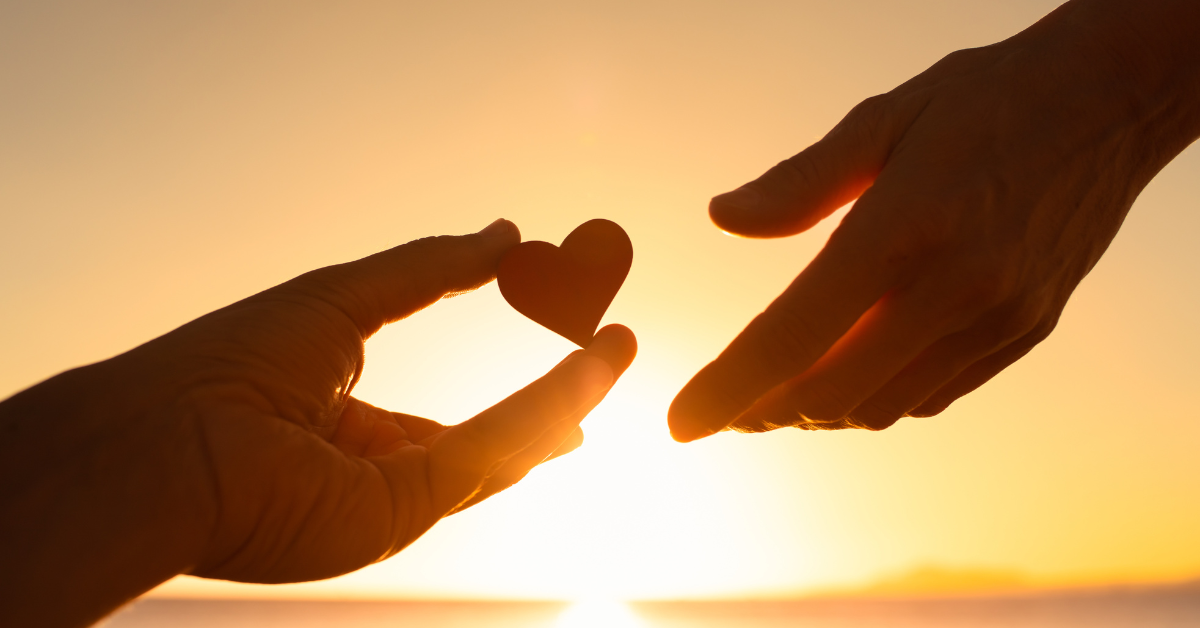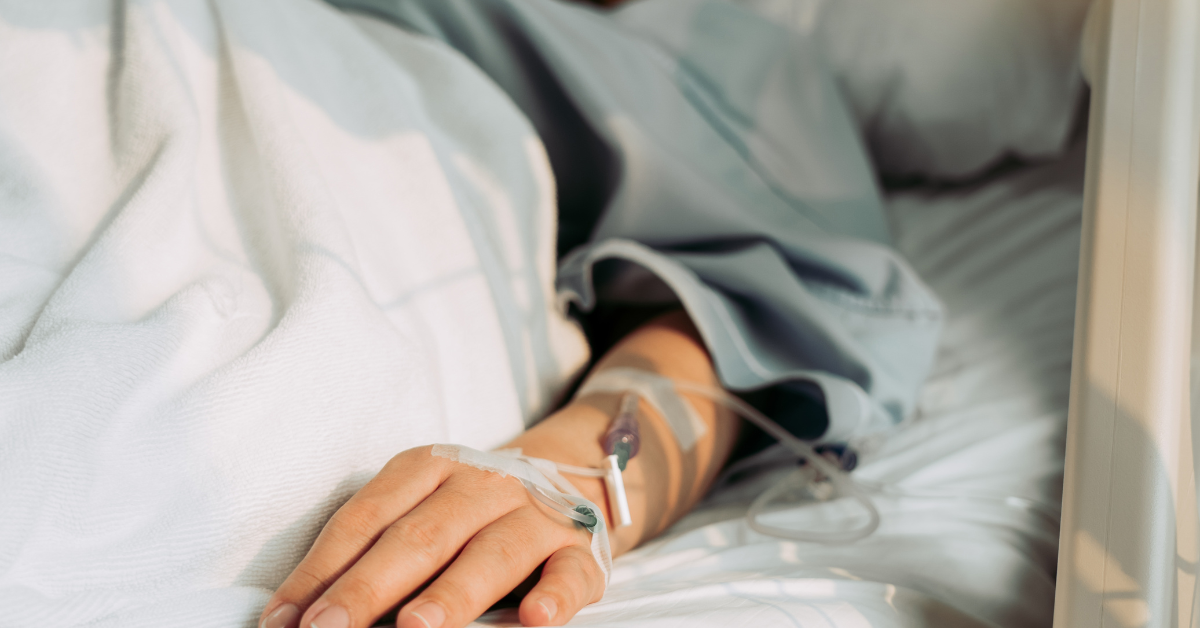111. Using Humor with ERP with Judy Lair, LPCC
This week, Carrie is joined by Judy Lair, a licensed professional clinical counselor specializing in OCD therapy, to explore how to use humor in ERP therapy and how laughter and creativity can be powerful tools in overcoming challenges on the journey to healing from OCD.
Episode Highlights:
The use of humor and creativity as powerful tools in overcoming anxiety and intrusive thoughts.
Customizing ERP techniques based on individual interests and strengths.
Strategies for incorporating creativity to confront OCD challenges.
Insights into the sanctification process and the choice between living in faith or seeking constant certainty in managing OCD.
Episode Summary:
Welcome to episode 111 of Christian Faith and OCD! Today, I’m thrilled to have Judy Lair, a licensed professional clinical counselor, with us to delve into the use of humor in ERP (Exposure and Response Prevention) therapy.
Judy’s journey into specializing in OCD began from her own experiences with anxiety and a background as a litigation paralegal. After a transformative period working with a psychiatrist and discovering her passion for counseling, she transitioned to working in OCD therapy. Judy’s approach incorporates humor as a tool to help clients navigate the challenges of ERP therapy.
In this episode, Judy shares how she uses analogies, like the haunted house, to help clients understand and manage their OCD. By embracing humor and creativity, she empowers clients to face their fears in a more light-hearted and less intimidating way.
Judy also discusses the importance of recognizing OCD’s inaccurate threat levels, likening it to a malware virus that skews our perception of danger. Her innovative methods, including using personal interests and humorous visualizations, make ERP more accessible and less daunting for those struggling with OCD.
Tune in to gain valuable insights into integrating humor into ERP and how it can make a significant difference in the therapy process. Don’t forget to subscribe and leave a review!
Related Links and Resources
www.treatmyocd.com/therapists/76492/judy.lair
Jusy Lair’s Books on Amazon
Explore related episodes:
Transcript
Welcome to Christian Faith and OCD, episode 111. Today on the show, I have with me Judy Lair, who is a licensed professional clinical counselor, here to talk with us about using humor in ERP therapy. We had a previous episode on ERP that you can go back and listen to; we’ll link that episode in the show notes for you, where we did just a brief overview of what it was. It was also a personal story from Stacy Quick, sharing some of her experiences with OCD and how she became an ERP therapist. Stacy was a therapist we met through NoCD, and we talked about that on that episode. Judy also works with NoCD.
_____________________________
Carrie: I’m happy to have you here today on the show.
Judy: Hi, Carrie. I’m glad to be here. Even with this not being my real voice, I think I can still talk.
Carrie: Yes, she is recovering from a cold here, so thank you for bearing with us on that one. I heard you speak at the AACC conference. That was how we met, and it was exciting to see how many Christian therapists were there interested in a presentation on OCD. That’s not something often covered or has been covered, I guess, at that conference.
How did you specialize in OCD? How did you get that to be a specialty?
Judy: I’ve had a lot of different types of jobs in my life, but one of the things was when I was on the other side of the couch, working through my anxiety and such for about a year, talking to me like, “You can do this, you can be on the other side of the couch.” I’m like, “No, here’s a whole bunch of reasons why, no, it’s not going to be me.” I was never one of those people that everybody came to for advice and stuff; that’s not me. Much more cognitive, I’m much more thinking about thinking, planning, strategic types of things. It’s my forte and stuff. So I’ve worked in a number of areas in different things, especially I was a litigation paralegal in a law firm for a bunch of years.
That was really my background. Then I started working in a doc psychiatrist’s office, and that’s when I kind of got that message from God about, “You really could do this.” So I went back to grad school quite late in life to do that. I found that was my niche, that was the thing I was doing all along; I just didn’t know it. Being a paralegal, educating, and helping people through, I did when people got injured and hurt and helped them through that. That was the start of me counseling. I just didn’t know it at the time.
Carrie: Yes, there’s so many overlaps, I think, between counseling and education and problem-solving. I’m sure that there were things that problem-solving that you had encountered, so I could see how all of the skills would be beneficial.
Judy: Right. I had finished grad school, and I was disappointed because I wanted to work in a Christian counseling agency. Once you spend the time and the money to get your degree, you have to spend extra hours to be able to get your independent licensure. That’s where, at least where I was living, they all wanted independent licensure, and I’m like, “How do I get that if I can’t get that?” It was a quandary. I still worked at the law firm that I was looking at for a bunch of years, and I opened this out of my house. I did evening counseling out of my house. Shortly after I started, there was this woman who came to me and said, “Well, I know I have OCD. I was diagnosed with it years ago. I’ve had treatment at some of the well-known facilities. I now live in my area. So do you think you can help me?” She explained her obsessions and compulsions, and I’m like, “Fascinating. Okay, so when you do this and you do this, then it ends up like this. If you do this instead of this, does it go like this?” She’s like, “Oh my gosh, I have never heard anybody get it who did not have OCD themselves.” I could just get it. It was definitely a gifting from God too. I understand the logic of OCD, which has a lot of logic in and of itself if you understand the root part of it. Once she recommended that, and I started working with her, then I read Jonathan Grayson’s Freedom from Obsessive-Compulsive Disorder. I’m doing everything in the book; I already organically knew what to do and how to walk people through that, which was really exciting. I found my path away. So I eventually took the International OCD Foundation’s Behavioral B2BI training. I spoke at one of their Annual conventions, gave continuing education conferences in Columbus where I was at the time. It just really happened from my niche in my area. Now, 22 years in January, that has been my specialty.
Carrie: That’s awesome. I always used to tell counselors that I was supervising, your specialty kind of finds you; you don’t really find it. I didn’t necessarily think that I was going to be working in the areas that I’m working in now, but I’m happy that God has brought me along this path. Mine kind of branched out of working with anxiety, and once you see enough people with anxiety, you’re going to eventually run into some people with OCD, and it looks a little different. You have to kind of readjust the toolbox and reexamine some of the things that you’re doing. We talked on that previous episode about creating hierarchies in ERP, the idea behind it that you’re exposing yourself to some things that are uncomfortable, starting with some smaller things and then gradually building up to the scarier stuff. You use a helpful analogy with your clients about a haunted house. Will you go through that with us? Just kind of like you would tell a client.
Judy: ERP, exposure response prevention, seems like anybody who’s heard about it has horror stories that it’s going to be so hard, so scary. But using the framework, thinking about a haunted house, if you’ve ever been to an actual haunted house, there are two things that you know to begin with.
Number one, you know that nothing in the haunted house is designed to physically harm you. You walk in with that kind of knowledge. Second, the reason why people go to haunted houses is they like the uncertainty. They like the thrill that you get when somebody bumps out, and you don’t know or a noise, and you don’t know when it’s going to happen. You get this feeling, this anxiety. I call it anxiety because it would make me have anxiety, but other people are like, “That’s a thrill.” They get this thrill going on. The first time you walk through a haunted house, it’s full of uncertainty. You don’t know what’s going to happen, but that doesn’t mean that you can’t continue to walk all the way through and get out the back door.
The good news for us is that God created a program in our brains called the habituation program. I like to call it Pac-Man. I just like the visual. So you’ve got OCD going, “Scary!” and then we’ve got a big old Pac-Man coming up, and we want to close scary down organically by inside, not us internally doing compulsions or something, but letting Pac-Man do that. The way that happens is if you walk through a haunted house the first time, it’s the scariest because you don’t know what to expect. You walk out the back door, come around the front, you walk through the same haunted house three times; you’re not going to be as scared by the 10th time. Pac-Man’s closing it down, closing down the anxiety to the accurate threat level, which generally is zero. But it closes it down so by the 10th time; it’ll be pretty funny. You walk through it; “Oh, the guy with the fair is going to show up. Yeah, then they’re going to dangle these things and go, ‘Boo!'” You can make fun of it, even if there’s still some level of nervousness in there. If we use humor in that way, like, “Oh, this is going to be silly, funny, scary,” it allows your brain to have that Pac-Man to start readjusting what is true about the threat level and close down the feeling, that adrenaline surge that you get, that feeling of anxiety.
Carrie: Talk about that a little bit more, just the inaccurate threat level related to OCD. Like OCD is telling you that something is going to be super scary, horrible, awful, but like your brain is malfunctioning there.
Judy: Yes, and that is key to OCD versus generalized anxiety disorder. With GAD and other anxieties, there’s still a thought where, “Oh, what if?” kind of thing to it, but your brain is able to quickly, if you use some logic, use some cognitive behavioral stuff, kind of, “Is it really true? Is that really that scary? Has that happened before in the past?” If you use some of those CBT kinds of things, generalized anxiety, your brain is like, “Oh yeah, that’s not really true. Calm down,” but when it’s OCD, it’s like, “No, maybe not that one, but another one and another one and another, and they pop up all over the place like that.” So the key, in terms of understanding if you have OCD, is the inaccurate thread. I call it a malware virus program in your brain.
If you think of your brain like a supercomputer that God made that always has this underlying operating system running, just like your technology, you’ve always got an operating system running underneath in our brain; that operating system is currently using our senses. What we see, taste, touch, hear, smell. It’s looking for data. Internally, the data it’s looking for are thoughts, feelings, body sensations, and observations. The way it was designed is that if we get one of those pieces of data that pops up, it’s a neutral piece of data initially that brings it to the first program in your brain in the frontal cortex. That program’s design is to say, “Is this piece of data a threat or not a threat?” Definition of threat is jumping out of a plane without a parachute. That is the only definition. There is no other definition that goes with threat. Anything less than that is on a continuum scale of something that don’t really like, gross, that’s really terrible, but none of those are threats. That’s where the malware virus program of OCD gets in there and cherry-picks and hijacks the things that matter to us and skyrockets the threat and says, “Oh, there’s definitely going to be a threat here.” Then it starts pushing those buttons with adrenaline and neurotransmitters, makes you feel like there’s something going on.
The urgency of now, we have to do it now, we have to figure it out now, know it now. All of that works together to combine to keep the threat being imminent, urgent, right now. That’s the part that with OCD there is no factual evidence that is what is actually true right now. You just think it and feel it, and therefore you feel like you must. Do something to fix it right now, going over and over because you do, you respond to it as if it actually is a threat. Then you create those neural pathways saying this is always a threat.
Carrie: That’s a really great explanation. Originally when I went to a two-day training in ERP with some people from Rogers and I got. Nothing against Rogers, by the way, it was just the training specifically really turned me off to ERP because there were a lot of extremes just we’re going to ban this behavior. You’re not going to be allowed to wash your hands at all, or you’re not going to be allowed to pray because you’re confessing too much to God. I walked away just feeling not only was this very rigid, but I felt like I was being asked to torture people. And I’m curious, what you’ve done is kind of taken some of these principles and used the scientific evidence of what you’ve learned and yet added humor and made it more fun or let’s laugh at OCD or make fun of it. Tell me about some of those things that you incorporate with your clients.
Judy: I feel like that ERP, if you understand from a faith-based perspective, you know, how God made us and the interaction, learning how to do ERP is very much the same sanctification journey that we want to do in life anyway. We’re always those concepts, the broader concepts of struggling with our fleshly nature. Paul was talking about doing the things he doesn’t want to do and can’t do the things that he wants to do. That sounds very much like doing ERP to me, always has. That’s why I view it in that way. I’m looking at what is the root issue here. And the root issue is that the malware virus is scaring me. That’s something that matters to me is really big and scary. It tells me I should take care of it. I should do it on my own, which is the opposite of what we want to do in a faith-based journey. Yes. In a faith-based journey, we always want to bring God into things. We want to wait on God. We want to hear the truth that God gives us rather than us going ahead and trying to fix things or do it all on our own. So to me, that always made sense in terms of how I do ERP.
I honestly don’t ever care if somebody who’s afraid of germs is able to reach out, grab a doorknob, and open the door. I really don’t care if they do it with their hand or paper towel. What I do care about is actually finding the courage to get through the door to find out. That really was their brain just scaring them about something and then they’re like, Well, I’m gonna let you do that to my life. I don’t need a paper towel. I’m just gonna keep on moving through. So attitude, that’s the attitude is one of the things that I feel like helps move us through things when we’re nervous and anxious and scared, kind of thing. That way of, let’s go, Jesus, the Rodney staff is with me, let’s go, let’s move it on, get to the banqueting table on the other side. That’s what I’m looking for, is the ability to have somebody be empowered to walk it out.
Humor and creativity is one of the things I see in the Bible so much. Think about, there’s some amazing, interesting things that, how God does things in the Bible. The biggest one to me is Jericho. Seeing how they won Jericho. That worship band is out front, and all the people are behind singing and worshiping God, and then the walls fall down, like, oh my gosh.
There’s other things, and I see other stories about how God used different people or situations. We’re very creative that we’re not the norm of how you do that. And that’s what works because God is showing that there’s all of these interesting creative ways of doing things. What I found is humor is really helpful if we can look at OCD. I have people come up with separating OCD as a separate entity and making a Fred Flintstone or one of the funny cartoon characters so that you can like, Fred, I don’t know anything about this thing, germs, or my relationship thing here, Fred Flintstone, what now? Um, and even though inside they’re going to feel like all of this, if you can make fun of OCD in that way and get your family member to say, you leave my wife alone, and then they’re both laughing and the laughter brings that level of urgency and oh no, and oh, it brings it down because you’re like laughing at it. Like you are ridiculous. You just think and think, or “Honey, I think you do,” Yes, you’re the worst thing in the world, being dramatic or silly or whatever. Doing it in these creative, silly ways really helps us as people to move towards something scary long enough for our brain to figure out, like, close it down. It’s not really actually that scary.
Carrie: Yes, I think of the two guys in the Muppets that are up in the balcony, and they’re just yapping around or somebody that’s heckling a comedian, you have that internal heckler, and sometimes it’s helpful to, like you said, create that separation, because it all feels like reality when you’re in what they call the OCD spiral, it just feels like everything’s so real now, but if you’re able to step back and even say, OCD is telling me that I’m going to get sick and die if I don’t do this, or if I go out in public and do these things, Then that helps you kind of create some of that mental separation. I think mindfulness and other activities that we teach clients thought diffusion helps with those things as well.
Judy: It’s really important how God made us and that’s one of the things that I always look for is something that’s sort of organic to how God made us rather than something so rigid and like you said extreme that they’re not, we actually have OCD or not we’re like, that sounds way too far. I would never do that kind of thing. I just feel like that people lost. That’s a little bit too much of the traditional ERP and that makes me sad in terms of understanding that if you work with somebody and with the way we were designed, that it actually helps us to go with the flow. One of the things that when I customize ERP for each client, I always want to find out about their background, things they’re interested in, who they are, if somebody is competitive, say in sports or something.
I had a teenage client that was like a volleyball player. I’m having her visualize and practice spiking the ball into OCD’s face when it’s trying to give her a hard time because that’s a natural thing that she does and she can use it quickly to say I still feel all of this but I’m going to picture OCD standing there and I’m going to slam this ball in his face. If you’re a sports fan like me and you have your rival teams and you’re like, Oh, that rival team is not going to beat me. No, come on, buddy. You can’t beat me at all. I become animated and silly on purpose so that I can show my client that they can be animated and silly in terms of that.
We use whatever types of things in that person’s life that they can use as a strength and empowerment strength to stand firm and be able to give some sass and give some, like, you are not the boss of me, give that one to kids a lot. You’re not the boss of me, which they love because they can’t tell that to their parents. They can tell that to OCD.
Carrie: Yes, I love it. I could see my daughter getting in on that if she had all those words right now. She would probably say that. “You’re not the boss of me.”
As far as like traditional ERP versus using humor and creativity, a lot of times I’ll have people just kind of sit and wait it out, right? Like, let’s wait for this anxiety where you’re trying to make the anxiety board, I guess, traditionally kind of wait it out. So you’re using some visualizations with people or. Some other, like, creative techniques where they can visualize and imagine themselves overcoming OCD in that process.
Judy: When you’re just waiting in the midst of it, you’re white knuckling. I hope it goes away soon. I hope it goes away. How long is it going to be? Is it done yet? Is it still here? When is it going to go away? That does not facilitate habituation, that doesn’t give the room for Pac-Man to go and close things down. We have to approach it, even kind of fake it till you make it, in a more empowered kind of stance. So that’s where, come up with a bunch of different ways that somebody can be active, but active exposing themselves and going towards OCD, and active while you’re waiting for that Pac-Man to do its job, rather than just sitting there and white knuckling. and stuff.
One of the ways that you can do it is that you can say, “Oh OCD, I’m so glad you showed up. You’re such a good guy. I’m glad you’re showing up today. Let’s watch some TV. Do you want some popcorn? I’m not going to talk about what you want to talk about. Talk about TV. Let’s just look here. Oh yeah. You want to talk about this? Eh, don’t really want to talk about that. You can hang around all day you want, but not going to talk about that. Let’s talk about making sandwiches. What kind of meat do you like on your sandwich? What kind of pizza toppings do you like? No, I’m not going to talk about what you want me to talk about. Let’s talk about ice cream flavors or something.” That is a more just calm, peaceful way for folks that like to be just kind of chill, calm, peaceful.
You’re accepting that OCD is there. You’re just refusing to talk about what it wants to talk about. You can move it on to being something like I said before, kind of dramatic, real dramatic. This is such an important thing. “Oh my gosh, you are so helpful, OCD. Tell me every little thing. I don’t quite understand how you know. Do you have a question? It’s a hotline to find. Are you on the psychic hotline? Maybe you’re on the psychic hotline. Maybe I didn’t know that you knew all of those things.”
Some of this like making fun of it, talking about what you’re not gonna take me on, you’re the opposite team. Any of these kinds of ways where you’re active, you’re active in doing ERP, which means you’re keeping your focus on OCD is there, um, looking at your OCD, I’m talking to you, but I am not talking about the topic that you want me to talk about because that thick is your inaccurate threat level on something, I’m not going to go there, you don’t have a driver’s license. You don’t have legs, and you don’t have arms, and you don’t have a face, and you don’t know how to drive. And kind of make it sort of funny that way. You’re being active while you’re waiting for the habituation to happen.
Carrie: You had talked about in your training singing silly songs like Old MacDonald or just other goofy songs.
Judy: I always have to make sure the clients understand there is, any school can be used as a compulsion, so anything you say or do can be a compulsion. Of course, the definition of a compulsion is doing something to make you feel better to avoid and get away from the anxiety, but anything can be an ERP tool as well.
There are some people that are very behavioral that say you can never sing a silly song or you can never talk about pizza to things. Because it’s always a compulsion, and I disagree, you can use anything to say, “I’m going to look you in the eye, and I’m going to talk about that instead, because I get to talk about what I’m going to talk about. This is my brain, this is my body, I’m going to talk about what I want to talk about”, and such. You’re using it to expose yourself, where OCD is trying to pull you to its topic, and you’re like, no, not going there. I feel it, not going there. That’s the key, the habituation. It’s not to have your hand on the doorknob for 24 hours without washing your hands. I guess maybe that eventually gets there. But it’s this struggle, this fleshly nature struggle, that where we choose to live by faith in that way, I’m not giving in to our feelings and our thoughts and our worries. As we do that, and we’re an intentional participant, that’s what makes that work better.
Carrie: Yes, I love that verse that talks about working out your salvation with fear and trembling because it’s God that works within you because we have a part and God has a part. One of the things that you and I run into in working with Christian clients is we’ll have people ask us or say things like, I’m praying, I’m waiting for God to take this away, and we’ve talked a lot about healing on the show. We’ve talked about various theologies and prayer and different aspects, but I love what you talk about with this being part of the sanctification process, because whether you have OCD or not, we’re in a struggle with our own minds on a day to day basis regarding are we going to be focused on the things of God and what God wants us to do? Are we going to be focused on sin and self and what other things that are negative? It really kind of fits in line with that sanctification process. What would you say to someone who says, “I just don’t understand. I’ve prayed and why hasn’t God just healed me from this yet? Or Why isn’t he helping me more through this process?”
Judy: What I’d say is that has to go back to our understanding of our role in God’s role and who he is. We have to broaden that picture too. The Bible is very clear. Our thoughts are not God’s thoughts. We do not have the understanding, whether it’s about something in our personal life, or why God allows terrible things in the world, and such. It has to go back to, we always make the choice of, are we going to be the ones trying to figure it out and try to get God to answer to us about things that we don’t understand and figure out or if we understand the parental way of doing things.
If you’re a parent, you understand that there are things that you say you can do with your child that they won’t get. They don’t understand because their age, their developmental age, or they haven’t walked through something yet. We know why we’re asking them to do or not do something, and they just think we’re being mean and they don’t get it and they don’t understand. To me, that’s parallel. “I don’t understand why you don’t take this away from me. I don’t understand why you allow things in the world. That causes me in my immaturity, that’s where I think that comes into our immaturity, back to sort of childishness of like, “I want to understand, I’m going to demand that I have to understand. I demand that you explain it to me”, whatever that might be, which includes that, “why haven’t you healed me” kind of thing, then our immaturity comes out and that’s what I think some of that’s a design to show that coming to the surface again, our fleshly nature is coming to the surface rather than saying, I choose to believe God is my heavenly father, who’s created me and loves me unconditionally therefore, everything he does is for my good. Even though it doesn’t feel like that and they don’t see it that way, I choose in faith to trust that and just walk out. I need to walk out day by day because that’s how I get to a healthier place that God wants me to be. That’s now how we get maturity is choosing to walk it out in faith even when we don’t see that may or may not change at any point in time.
Carrie: How do you work with clients dealing with scrupulosity, who are having some of these difficulties with trusting God, with the uncertainties of our faith and life?
Judy: I have a lot of folks who are like, what if, what I’m thinking or feeling, or even the thoughts that I have are sinful and if I’m not pushing them away, talking about not pushing away the scary thoughts or I’m not reacting to them, then that means, in their mind, that means I’m not faithful, I’m sinning because I’m not trying to push things away.
I go back to the broader concept. We talk about what is their view of God. How do they see God as in a punitive way, as their Heavenly Father? If they’re parents, well, if your child thought this about you, would that be accurate? That kind of thing. Have them understand that this one area that they are worried about doesn’t overshadow all the other things that they actually believe about who God is and how God loves and cares for them.
It’s just out of their fear and anxiety that they want to go out that they want to get certainty and know for sure but nobody has that nobody has that we’re humans and so we don’t have 100 percent certainty of anything honestly about God this side of heaven we really don’t we would like to say we do and folks with especially scrupulosity but let’s see they feel like but my friends or my family say they know what’s Certainty that God loves them or they’re going to have it or whatever they are so certain, well, yes, but no. Nobody has actual sexual certainty and our feelings about anything. If you ask that family member and you track their feeling of certainty from our, to our day to day, year to year, that would change too. It’s just a, a way of speaking at any given time about where we are. feelings but feelings do not equal truth. I broaden it back to how do they want to live out their faith? Do they want to live it out as a faith based journey where they’re walking you know and taking risks in faith or do they want to be the one that trusts in chariots and their own manpower and their own knowledge and their own understanding?
I always bring people back to which one of those two do you want to live out? Well, right now you’re trying to live out your own understanding and getting answer knowing for certain and such and nobody has that, so you can keep doing that if you want your life to keep feeling like this versus choosing to take this risk.
Carrie: I think that normalization of doubts and normalization of uncertainty is huge because in certain faith circles, there are things said like, do you know that you know that you know that you know that you’re a Christian and do you know, you know, you know you’re saved and that’s probably like the worst thing that you could say to someone with OCD because we all have to live with a certain level of uncertainty and unanswered prayers and not knowing. We’re not going to know everything, like you said, and we have to accept that, that we’re in the child space in our relationship with God, and we may not know all the ins and outs and the whys and so forth.
I think this episode is going to be really great and helpful for people who are dealing with all different kinds of OCD and maybe some people that are even in ERP therapy that can utilize some of these strategies that you’ve talked about to help them create a little bit more lightheartedness about it and not have to engage with it in such a serious, like you said, scared manner.
People are scared to engage with this type of therapy sometime. I think your presentation and dealing with other mentors that I’ve had have kind of helped me soften a little bit towards my ERP initial standoff ed ness that I had at the beginning of learning about it, I thought, this maybe, I don’t know that I can really do this, but it just kind of opens a doorway for me to be able to integrate some of these things with the clients that I’m working with.
Judy: Yes, at the beginning, the first couple of years, I had somebody, again, not to nullify Rogers, but who was in the Rogers program, and they contacted me for follow up care, and what they wanted me to do was come to their house, time them taking a shower, make sure they got out of the shower on time, and then time them when they were washing their hands to make sure that they got out of it because that’s what they did at Rogers. I did that for a couple weeks and I’m like, this, I can’t, no, I don’t believe in this. I don’t think this is going to help you long term. Have a babysitter stand there and watch you do these things. That’s not how you’re going to learn. You need to learn how to underline. I don’t want this for my life. I’m not going to let you OCD do this for my life. So I’m going to find some way to give you some sassiness. And some silliness because I don’t want to live this way. That’s what I can provide to people and that has made such a difference. I am so blessed. I feel so blessed and thankful to God that every day I help people get out of these terrible places, these prisons, these torment place because I can help show them the pathway is that God designed this already that there is a way to get there and that you can do it. There is hope. That’s what we bring to folks is the hope that life can change, things can change and God already has it in your head. Let’s go use what God gave you to be able to get you out of this terrible place.
Carrie: Awesome. Well, we’ll put a link to your NoCD profile in the show notes. And I know you’re licensed in several states so people can. Look you up and see you as a option if they’re in one of those states, so that would be awesome too.
Judy: Not bragging, but I have written some books, so if you want to go on Amazon and my name is Judy Lair. I have a series called “Freedom from Fear.” There’s a specific book on OCD. There’s also one in Generalized Anxiety Disorder and one on stress and worry because men do not have anxiety, they might have stress and worry and then have a big one that talks about my journey with anxiety. It also talks about OCD and, and how I’ve come through all of that in the background I came through, how I got here. That talks about my faith and looking at faith in terms of that. You can go on Amazon and find those things if those are helpful resources.
Carrie: Yes, that’s awesome too. I forgot you were an author, so it’s good to put that in at the end. All right, thanks for your time today.
Judy: All right, Carrie.Thanks!
__________________
Carrie: I wanted to let you all know that we have a new freebie on our website called How to Handle Difficult Thoughts. You can find this at www.hopeforanxietyandocd/free. We have several different free downloads that you can benefit from there, but this download specifically is to help give you a little bit of a taste of our mindfulness course coming up.
This is to give you a little taste of “Reclaiming the Mind: Learning to be Present.” One issue that a lot of clients talk to me about is having racing thoughts, not being able to know how to slow their mind down. Mindfulness is a great way to do that, so this course will be launching soon, and if you get our emails, you’ll be finding out all about it. I Can’t wait to share it with you.
Christian Faith and OCD is a production of By the Well Counseling. Our show is hosted by me, Carrie Bock, licensed professional counselor in Tennessee. Opinions given by our guests are their own and do not necessarily reflect the views of myself or By the Well Counseling. Until next time, may you be comforted. by God’s great love for you.








